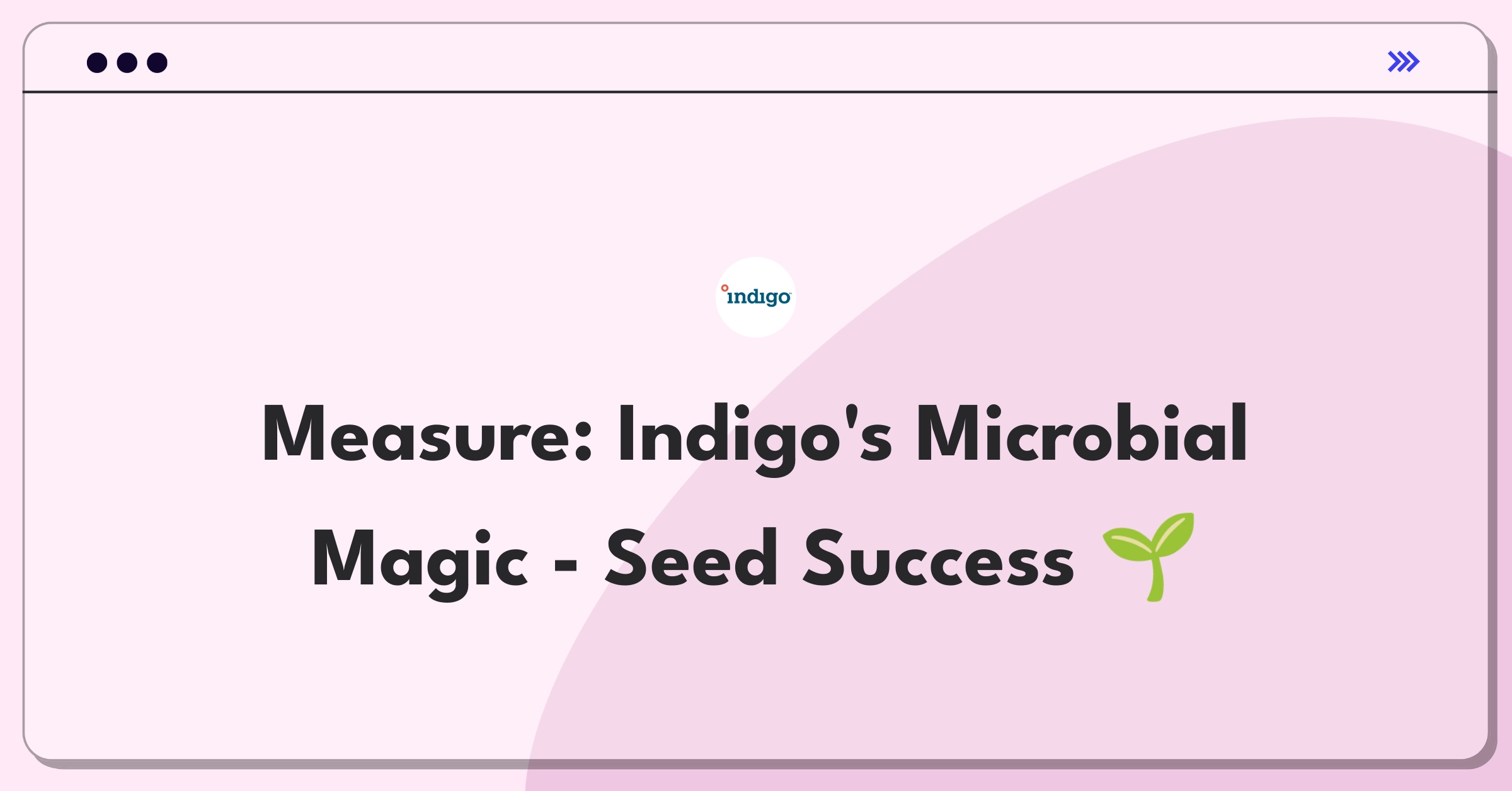Introduction
Defining the success of Indigo's microbial seed treatments requires a comprehensive approach that considers multiple stakeholders and metrics. To address this product success metrics challenge effectively, I'll follow a structured framework covering core metrics, supporting indicators, and risk factors while considering all key stakeholders.
Framework Overview
I'll follow a simple success metrics framework covering product context, success metrics hierarchy.
Step 1
Product Context
Indigo's microbial seed treatments are biological products applied to seeds before planting to enhance crop performance. These treatments contain beneficial microbes that colonize the plant's root system, potentially improving nutrient uptake, drought resistance, and overall yield.
Key stakeholders include:
- Farmers: Seeking improved crop yields and resilience
- Indigo Ag: Aiming for product adoption and revenue growth
- Environmental groups: Interested in sustainable agriculture practices
- Regulators: Ensuring product safety and efficacy
User flow:
- Farmers purchase treated seeds or treatment products
- Seeds are planted using standard equipment
- Crops grow with potential benefits from microbial colonization
- Harvest occurs, and farmers evaluate results
This product aligns with Indigo's broader strategy of promoting sustainable agriculture through biological solutions. Compared to competitors like Bayer and Syngenta, Indigo's approach focuses more on naturally occurring microbes rather than genetically modified organisms.
Product Lifecycle Stage: Early Growth - The technology is proven but still gaining widespread adoption in the agricultural market.
Physical Product Considerations:
- Distribution channels: Direct to farmers and through agricultural suppliers
- Shelf-life: Microbes must remain viable until planting
- Sales model: Combination of direct sales and partnerships with seed companies
Subscribe to access the full answer
Monthly Plan
The perfect plan for PMs who are in the final leg of their interview preparation
$99.00 /month
- Access to 8,000+ PM Questions
- 10 AI resume reviews credits
- Access to company guides
- Basic email support
- Access to community Q&A
Yearly Plan
The ultimate plan for aspiring PMs, SPMs and those preparing for big-tech
- Everything in monthly plan
- Priority queue for AI resume review
- Monthly/Weekly newsletters
- Access to premium features
- Priority response to requested question


.png)